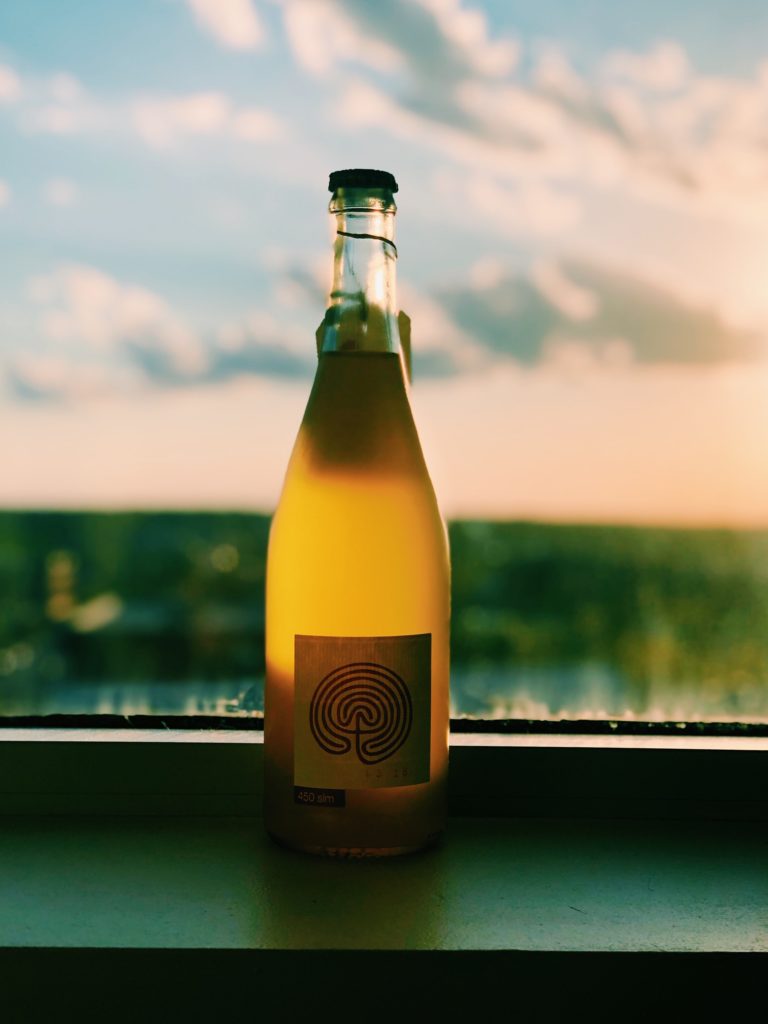
What Is Natural Wine?
Guest post by Kaitlyn Ross
Chances are you’ve heard of natural wine. Whether you can describe it or not! The truth is, there’s no legal definition, which is just confusing. In her recent book Natural Wine for the People, Alice Feiring nailed it, “Natural wine is wine without crap in it.” But let’s start with a primer to get you rolling.
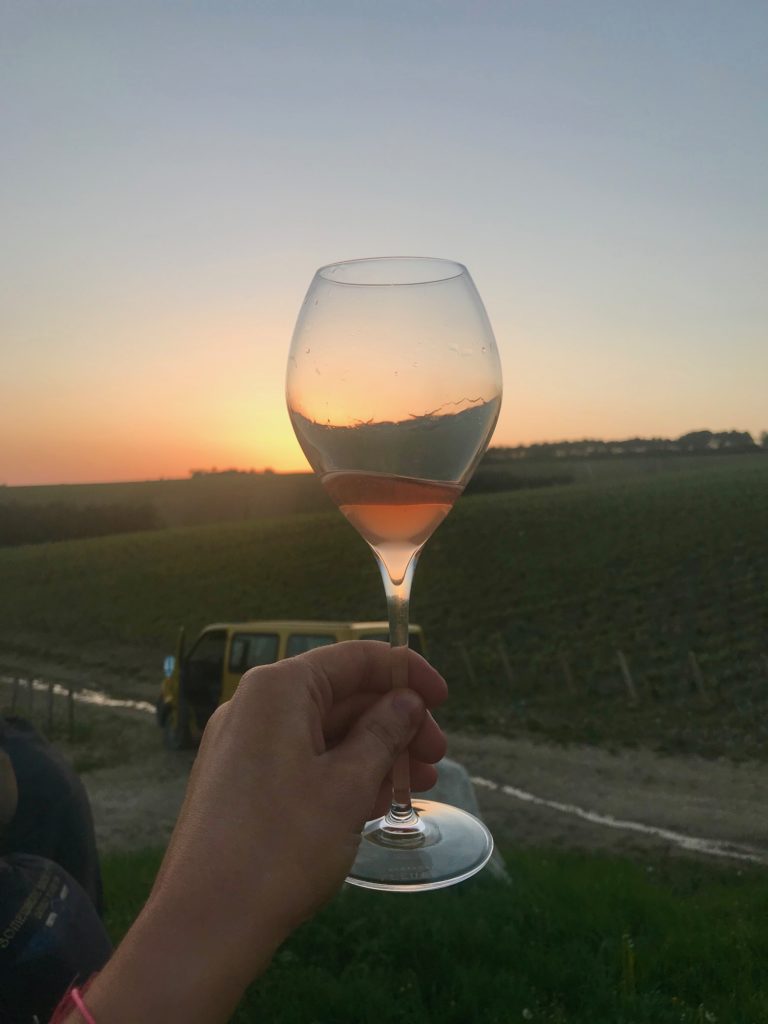
Key Components of Natural Wine
- Organic or biodynamic grapes (a step above organic farming which involves an almost spiritual, homeopathic approach towards agriculture). Grapes are hand-picked, rather than machine-harvested.
- The winemaker does not add anything foreign or remove anything from the wine during the winemaking process.
- Little to no sulfur, a preservative and the most common wine additive. Too much sulfur can kill wine. The unique qualities given by nature dissipate in exchange for a lifeless liquid. It’s also thought to be the leading cause of wine headaches and hangovers.
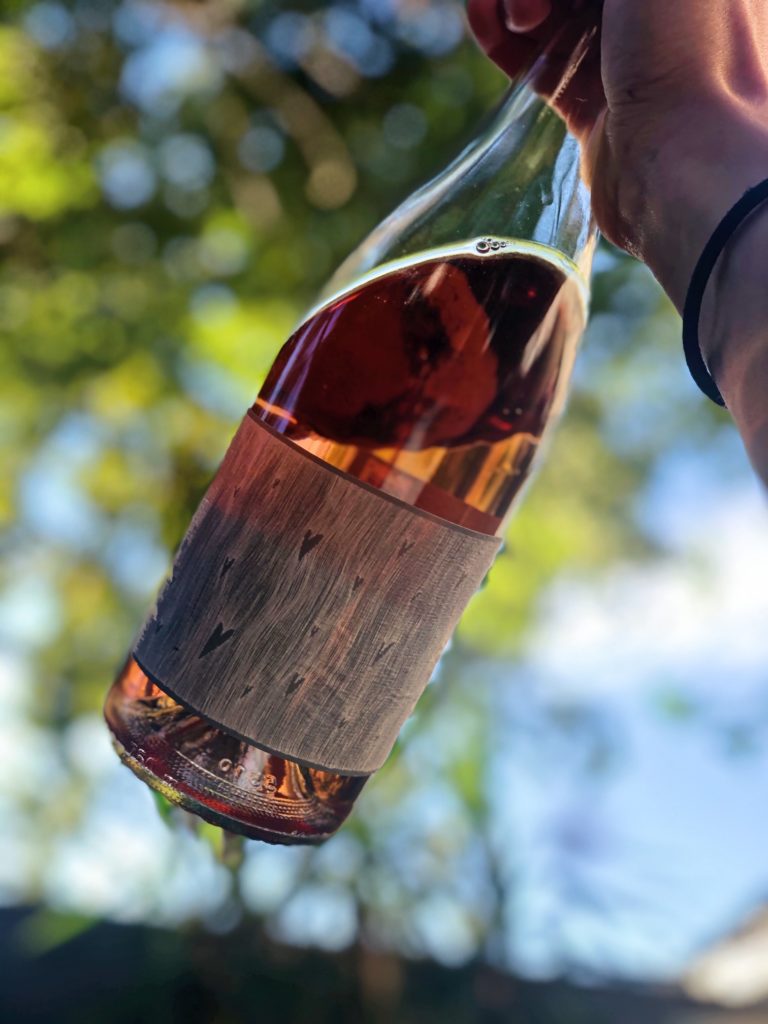
Ten Tips For Buying Natural Wine
- Become a Regular. If you typically stock up on groceries and wine in one trip, make some changes! Grocery stores and wine and spirits chains tend to carry big-batch wines. While you may find wines labeled “organic,” it’s likely they were industrially-made. All natural wines are organic, but not all organic wines are natural.
- Visit or call a few independently-owned wine shops near you. Do your homework! Talk to the shop owners, find out what they carry.
- Use Raisin, the only natural wine app. Check the map to see what’s in your city. In Houston, we have Light Years Wines, Montrose Cheese & Wine and The Heights Grocer.
- Order directly from natural US wineries. Many natural wineries have wine clubs, or you can simply order a few bottles at a time. Some favorites: California: Donkey & Goat, Matthiasson, Dirty & Rowdy, Broc Cellars , Vinca Minor, Arnot-Roberts, Cruse Wine Co., Sandhi Oregon: Day Wines, St. Reginald Parish, Division Wine Co., Evening Land
- Join a natural wine club. It’s like Christmas! You never know what you’re getting, but the discovery is the best part. Helen’s Wine Club, Rock Juice and Primal Wine are three great options.
- Shop by distributor/importer for non-domestic wines. Smaller-scale, credible importers and distributors only sell wines they stand behind. Here are some favorites, look for their sticker on the back of bottles: Jenny & Francois, Kermit Lynch (they also have a wine shop and wine club), Jose Pastor, Selection Massale, SelectioNaturel, Fifi, Louis Dressner, Rosenthal Wine Merchant and Becky Wasserman.
- Be open to shopping by country and region. Large-scale wineries tend to grow popular, marketable grapes like Chardonnay, Pinot Grigio, Cabernet Sauvignon and Pinot Noir. Their unique qualities are lost without what the French call terroir: soil, climate, elevation, sun exposure, age of vines. When you experiment with new regions, you’ll learn about uncommon, remarkable grapes. Try wines from Jura, for example, a French region bordering the Alps. You’ll discover Gringet and Poulsard, which are solely grown here.
- Be aware of how the region’s reputation affects the wine. Once you start drinking natural wine, countries and regions will become much more exciting. A smoky red made with grapes grown on the volcanic soils of Mount Etna in Sicily? Count me in.
- Sometimes, labels matter. We’ve always been told never judge a book by its cover, but eccentric and quirky labels are a telltale sign that you’ve found a natural wine. Natural winemakers insert personality into their labels. You’ll stumble across symbolic drawings, unique lettering, lots of color, and beautiful graphics!
- Read about natural wine – it’s fun, not like a textbook! Check out Natural Wine For the People for a comprehensive, illustrated guide. If terroir intrigues you, the Dirty Guide to Wine will tell you all about the ground where grapes grow. The Sommelier’s Atlas of Taste is a field guide to European wines. And if you love to cook and entertain, Wine Food gives you a pairing of 75 recipes and 75 wines.
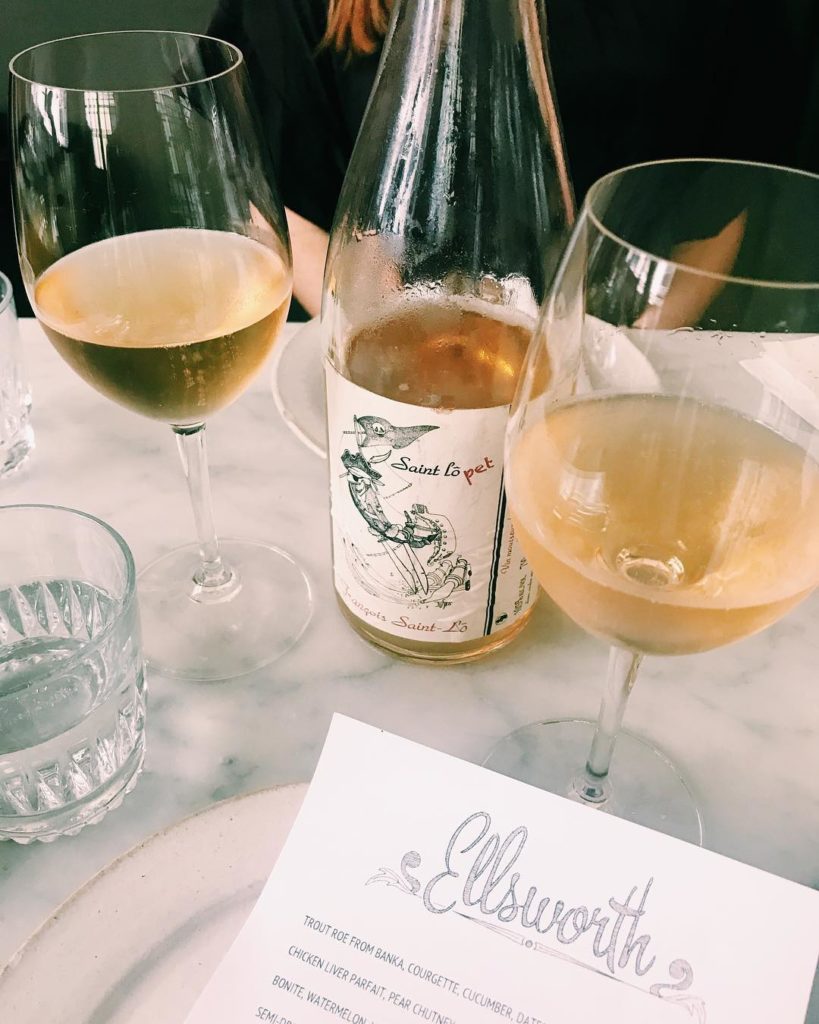
Where Does that Leave Us?
When you drink natural wine, you trade monotonous bottles for ones filled with life. You’ll taste wines made by storied families and agriculturists who treat their vines with love and care. Because no two natural wines taste the same, you’ll truly get to know your palate, and become part of a community, geeking out over bottles and producers.
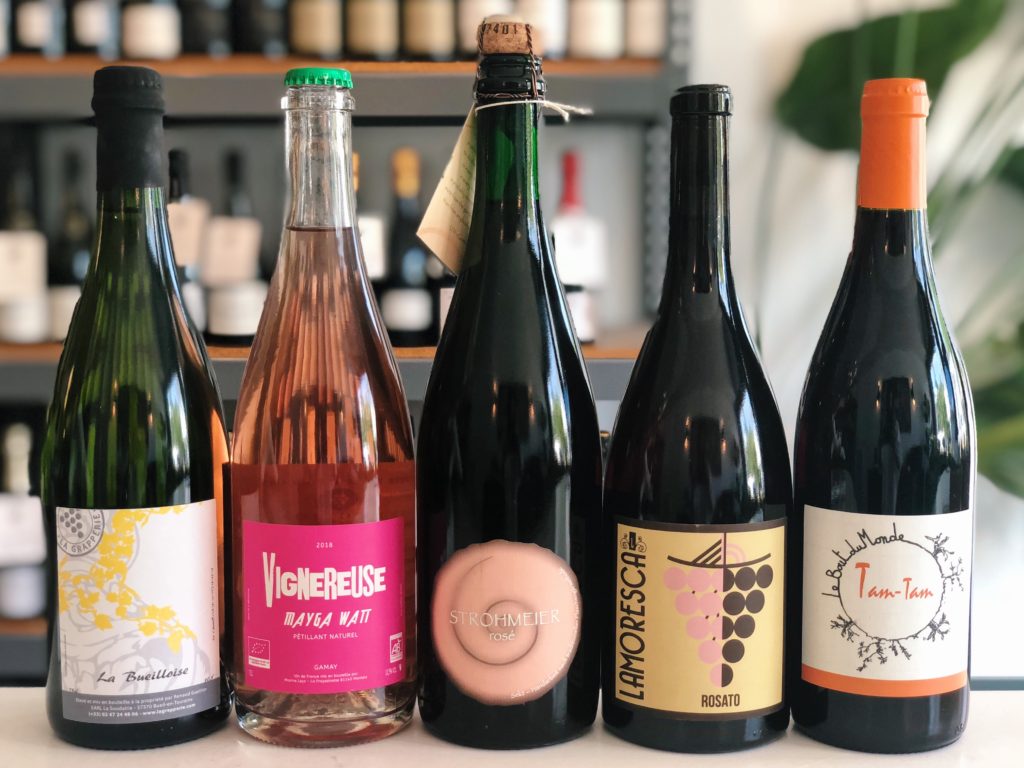
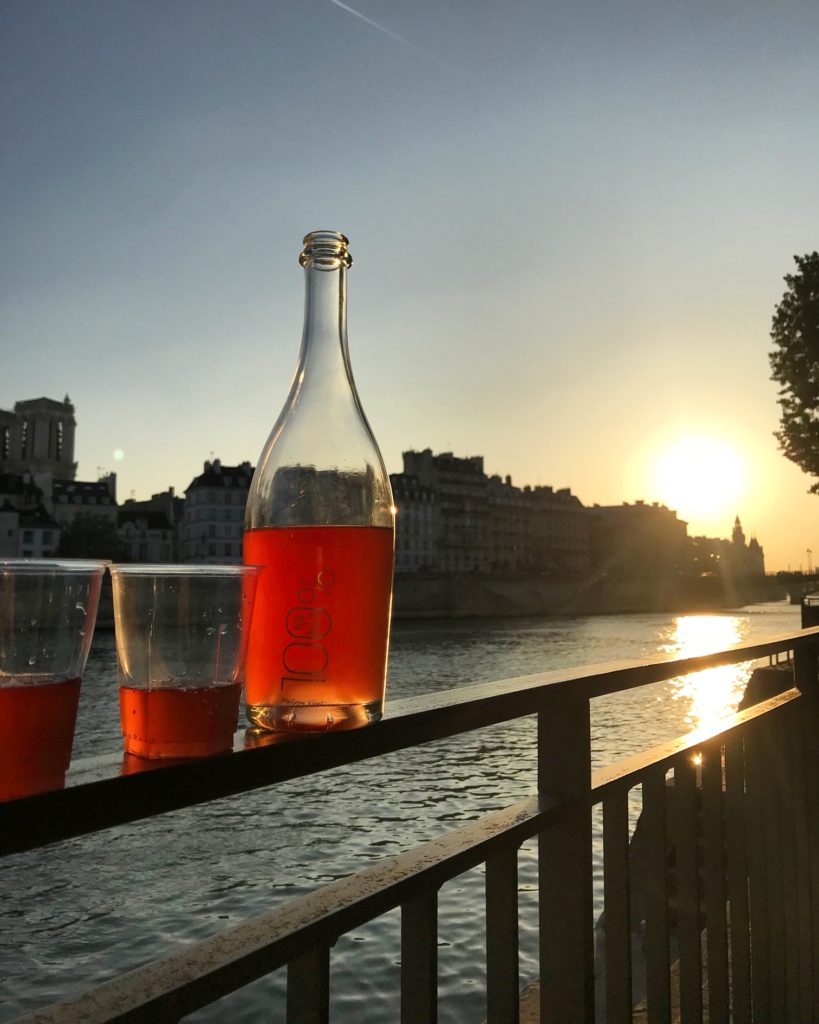
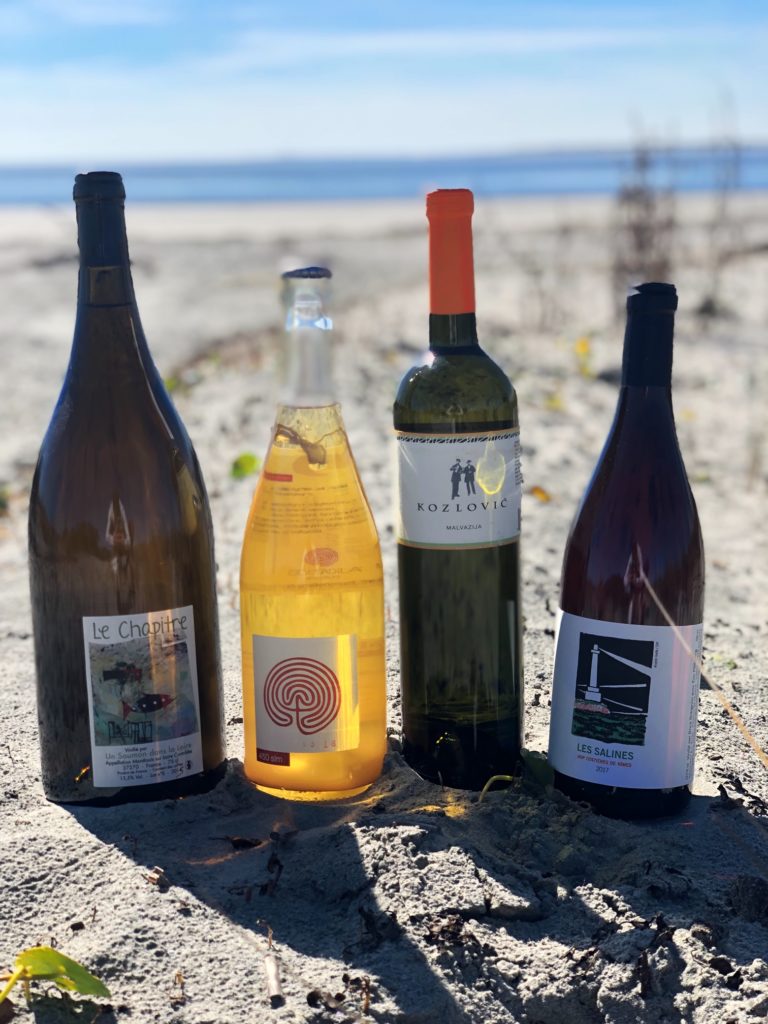
I love your blog, Marcia! I am sad though that there is absolutely no mention of Scout and Cellar in the article. Our founder/CEO is an attorney turned Level 3 sommelier. Our company lab tests wine twice in the wine making process to insure there are no chemicals or added sugars. We source wines from all over the world, working with amazing biodynamic vineyards. Our standards are incredibly high. There are no other companies that lab test like we do. As a Houstonian by birth, I love seeing local business mentioned. 💗💗